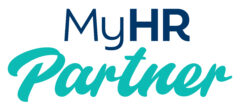For most companies running a fleet, GPS tracking is an essential part of good operations. The trackers help managers create better operational efficiencies, a more agile dispatch system and provide insights that can lead to real improvements to the bottom line.
But many employers fear backlash from employees, they worry that staff will feel they’re being spied on, not trusted or that owners are trying to ‘catch them out’.

Keeping it fair
GPS tracking employees is not as one sided as it first appears. It’s actually a powerful tool for keeping the employer/employee relationship fair. Data recorded and stored can be used to hold both parties accountable for meeting their responsibilities. However, there needs to be a line drawn between what is surveilling employees for the purposes of work, and that which is invading their privacy.
Australia does not have blanket laws covering GPS tracking of employees, but that doesn’t mean there aren’t governing rules over what you can and can’t track as an employer. Each state and territory has its own surveillance and privacy laws that you must adhere to, with some stricter than others. Links to each relevant state and territory law can be found here.
Clarifying surveillance laws
Notify your employees, in writing, at least 14 days before tracking starts or before an employee starts employment with you. Let them know:
- The kind of tracking to be carried out (GPS for tracking purposes), and
- How the tracking will be carried out (via the installation of a GPS tracking device),
- When the tracking will start, and
- Whether the tracking will be continuous or intermittent, and
- Whether the tracking will be for a specified limited period or ongoing.
Consent must be given by all parties before tracking can begin. It can be given expressly, such as in a written letter, or in a signed contract. It can also be implied. Implied consent requires the person being tracked to be given full details and when, why and how they will be tracked and them not objecting to the tracking.
Finally, put a notice up clearly on the vehicle/s, reminding drivers that they are being tracked.
Introducing tracking to staff
When it comes to introducing GPS tracking to your employees, some will ‘get it’ straight away. They’re the ones you know are probably doing the right things and already representing your company well. Others might feel you don’t trust them, that you’re trying to ‘catch them out’.
It’s important to make it clear from the first moment that introducing GPS is not about fault finding, it’s about being a better, more efficient, more productive business. GPS tracking helps employees work better, provide a better level of customer service and create better customer loyalty. At the end of the day, loyal customers mean better job security and happier employees.
Be upbeat and upfront
In addition to written notification it’s best practice to meet with the team as a whole, or one on one, to explain exactly why the tracking is needed and what they have to gain from it.
Keep your discussions positive, focusing on the benefits and providing plenty of opportunity for feedback and questions. Change can be hard and if you’re not talking to your staff about it they will fill in the gaps themselves and assume the worst.
Explain how it will work
Staff need to know that this is going to help them and the business. Be clear about the reasons why the trackers are being introduced.
- Trackers create a safer workplace
Drivers will receive immediate assistance if they break down, have a collision or are in distress, even if they are working remotely or out of hours.
- Trackers help keep vehicles healthy
Vehicle health can be monitored and maintenance scheduled by head office. Automated maintenance reminders will be sent to staff to reduce the risk of on the road problems.
- Trackers reduce the amount of paperwork
The data needed to record time on jobs, travel times, kilometres travelled and other logbook information is automatically recorded by the GPS.
- Trackers help keep clients happy
Faster dispatch, more accurate billing and a more responsive service means happier clients and a better workplace.
- Trackers help us keep your back
Drivers are now protected against false claims by clients such as “They were late,” or fault claims in the case of accidents.
Explain your expectations
Make it clear what behavior is and isn’t acceptable on the road and on a job. This can be in the form of KPIs or part of their employment contract.
Consider a bonus structure
If employees are concerned you are trying to find ways to ‘punish’ them, flip the discussion to rewards. Employees who meet certain safety and productivity levels will be rewarded either monetarily or by other incentives.
Give them the Big Picture
It’s important that staff understand how GPS tracking is going to help grow the business. If your employees are excited about the future of their business, they’ll understand the need to install GPS. A healthier business means a secure future and possible financial rewards for them.
Invest in their future
Make sure your employees know you want them to succeed. The GPS data provides an opportunity to provide coaching on customer service, driving behaviour and productivity. Have a chat with them about what efficiency means for their clients and the chain reaction that comes with a better level of service. Better service means happier clients, happier clients stay loyal and spread word of mouth referral. The more happy clients the business has the more successful the business and the better rewards for staff.
In the long term the proof will be in the data. Provide staff with real, measurable benchmarks for the company to meet in order to prove the success of the tracking measures. Then celebrate the wins with the whole team as they come, working towards a high achieving company culture with employees who take pride in their work.




















